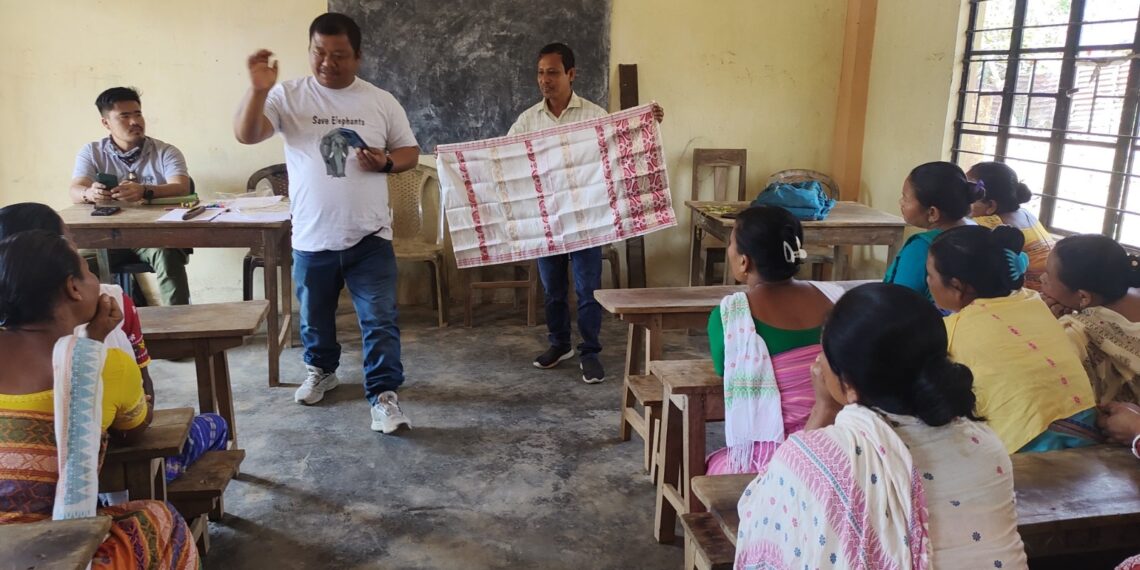GUWAHATI: With human elephant conflict (HEC) affecting livelihood options such as agriculture in certain areas of the Meghalaya, a two-day training programme on handloom was organised in West Garo Hills recently.
Organised by Aaranyak, a biodiversity conservation organisation, in collaboration with British Asian Trust, the programme was aimed at providing alternate livelihood option to the womenfolk of the region in view of the increasing incidents of HEC.
During the two days, 27 HEC-affected women were trained on handloom operation at the Bordubi LP School in West Garo Hills as part of the initiative.
“A training programme like this aims to equip women with the necessary skills so that they can sell their products in the competitive market and make sure that their products quality and design stand out from the rest. The focus is on creating unique designs that can add more value to their products and increase their profitability,” said Dr Bibhuti Prasad Lahkar, a senior conservation scientist in Aaranyak.
Aaranyak roped in Nadeswar Deka, an expert in handloom, to train the group of women on how to effectively market their products and augment their income by applying design principles.
Deka’s expertise and guidance enabled the women from Photamati, Bordubi, and Lower Kaersengdap villages to leverage their talents so they are empowered to supplement their livelihood.
The training aimed to build capacity and create livelihood opportunities for HEC-affected villagers so they could coexist with threatened Asian elephants.
In Assam and Meghalaya, Aaranyak, in partnership with the British Asian Trust and with Biodiversity Challenge Funds, UK support, is working collaboratively with local and indigenous communities to promote coexistence between humans and elephants.
Aaranyak’ Nipul Chakma, Pranjit Borah, Swapan Das, Subash Chandra Rabha, along with village Champion, and the Nokma (village head) of Photamati village facilitated the programme.















